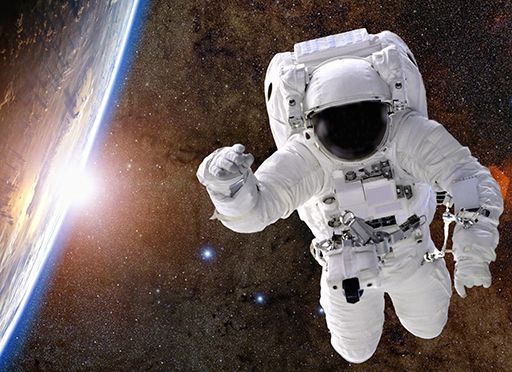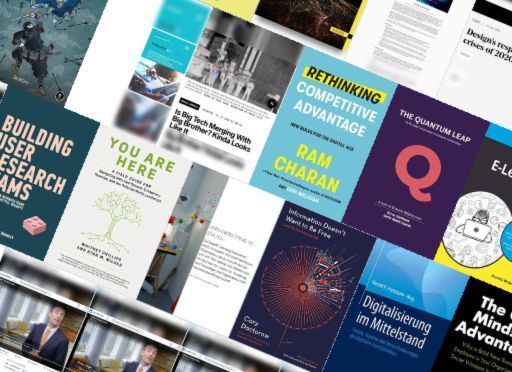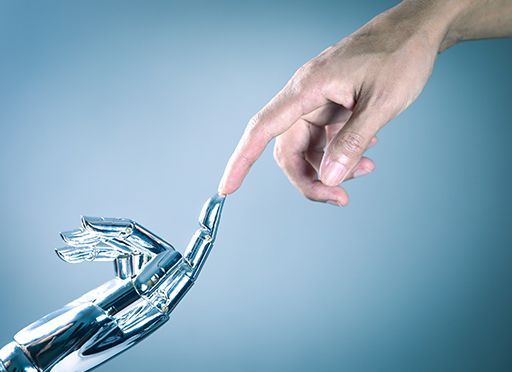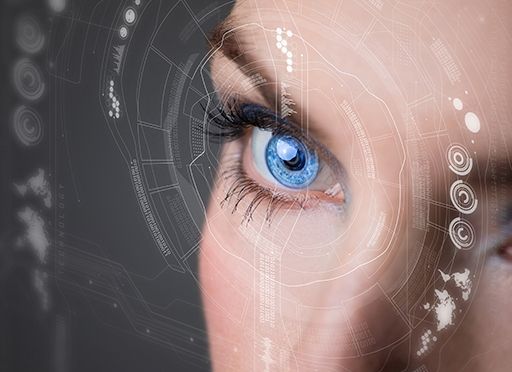Best-selling public intellectual Yuval Noah Harari argues that free will doesn’t exist, that people worship themselves and that AI will destroy you.
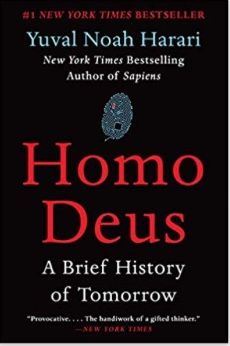
Human Machines
Yuval Noah Harari, PhD, lectures on world history at the Hebrew University of Jerusalem and wrote the bestsellers Sapiens: A Brief History of Humankind and 21 Lessons for the 21st Century. His books have been translated into more than 50 languages with more than 12 million copies sold worldwide.
Smart, original and compelling, Harari considers the consequences of humanism and the pursuit of divinity. He suggests a future world in which humans create AI, which will come to dominate society and treat people like slaves or animals. Homo sapiens don’t have free will, in his estimation, and he regards consciousness as a mirage. His is not a charitable view.
Readers love Harari and reviewers really love him. The Observer (London) called this “… a highly seductive scenario planner for the numerous ways in which we might overreach ourselves.” The Washington Post said, “Harari’s formidable intellect sheds light on the biggest breakthroughs in the human story…important reading for serious-minded, self-reflective sapiens.” However, as much as reviewers praise Harari’s intellectual credentials, he clearly writes for a mass audience and is never inaccessible.
The New Religion of Humanism
Harari contends that humans rule the world because they organize and tell stories. Only humans create “fictions,” including governments, corporations, money, laws, religion and nations.
Having raised humanity above the beastly level of survival struggles, we will now aim to upgrade humans into gods – and turn Homo sapiens into Homo deus.Yuval Noah Harari
Contemporary people can hold onto power not because they’re smarter than early humans, the author avows, but because they have imagination.
Harari notes that as people turned from hunting to farming about 8,000 years ago, they required fewer gods. One god would do, he notes, if it sanctioned the mass killing of animals and the enslavement of peoples. Today, Harari says, people worship themselves. This new religion – humanism – posits individuals and their experiences as the most important thing in the universe.
Techno-Humanism
Humanists defend the individual’s right to make personal choices – Harari states that they regard this as free will. But, he reports, over the past decade, neuroscience and biology revealed that humans may not actually possess free will. Harari maintains that your subconscious controls about 99% of what you do, and your DNA predetermines your choices.
He insists that human nature, depressingly, makes people miserable; they live in a perpetual state of dissatisfaction. Up ahead, he predicts an age of techno-humanism – a combination of biotechnology, data and artificial intelligence (AI). Any person or nation that fails to learn and embrace it, he cautions, will face irrelevance and extinction.
Eternal Life
Harari thinks people value life and experience and thus, they will try to upgrade themselves and prolong their lives – re-making themselves into immortals: gods.
The shifting of authority from humans to algorithms is happening all around us, not as a result of some momentous governmental decision, but due to a flood of mundane personal choices.Yvval Noah Harari
Most religious people today, Harari thinks, worship God in the abstract and follow man’s law, not God’s, setting the stage to transfer God’s authority to themselves.
Artificial Intelligence
Harari argues that for humankind to reverse aging, it needs incredibly powerful algorithms. Increasingly, he maintains, algorithms will know you better than you know yourself. They’ll tell you where and what to study, where to work, how to vote for and even which person to marry. As people delegate decision-making to AI, Harari suggests – in a stretch even for him – they will grow irrelevant, especially to their (dissatisfied) selves.
As AI lowers human worth, Harari contends, AI might judge humans superfluous and exterminate them. People will develop superhuman intelligence in tiny increments and, like global warming, he says, AI won’t seem dangerous until it reaches a tipping point – and then it will be too late to fix AI.
A Failure of Free Will
Harari argues that people lack the free will to stop themselves from this destiny. He points to a newly-emerged scientific consensus that humans are merely a set of biological algorithms programed to make the decisions they make.
Harari holds out hope that because humans have tried and failed at many ambitious things, they will also fail to create superhuman intelligence. He proves least convincing when raising alternatives to the future he envisions. Accelerated, human-driven evolution of superintelligent AI, Harari insists, will come about because humans don’t possess the free will to stop themselves.
Brilliant Cynicism
Harari offers a well-developed, well-researched and articulate cynic’s perspective. His view of humans as pre-programed animals incapable of getting out of their own way makes for fascinating reading, but it’s not for those who take offense at outlying religious or political views. Harari has little use for religions, deities, societies, governments or science and even less regard for the transcendence of human connection – you know: love.
Consciousness may be a kind of mental pollution produced by the firing of complex neural networks. It doesn’t do anything. It is just there.Yuval Noah Harai
He regards the human brain as people’s most dangerous organ, especially since he believes human beings have no idea what to do with the little sense they possess. The main problem with his arguments is that they seem well-founded, carefully thought out and sincerely held. While you may dispute his dystopian visions of the future, Harari makes his points clearly and persuasively in this bleak presentation of the present and near future, and how humankind created both.
If Harari speaks to you, then your most rewarding ancillary reading will be more Harari: Sapiens and 21 Lessons for the 21st Century.


